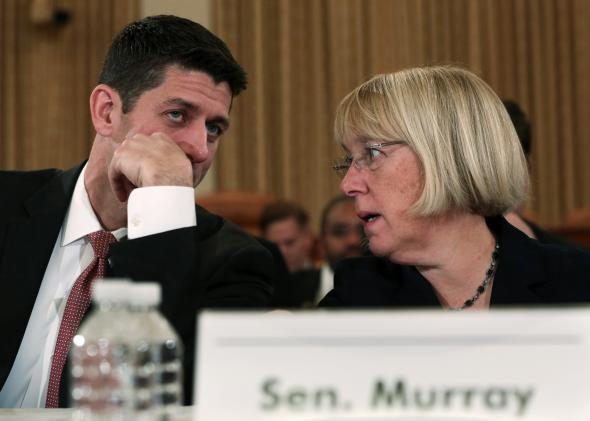On Dec. 5, Kansas Republican Milton Wolf announced his opposition to the Murray-Ryan (or, if you’re being technical, budget conference committee) deal. If he won his 2014 primary for U.S. Senate, he’d oppose such a deal.
I oppose the terms of the Murray-Ryan budget deal that are being reported in the news media. The bill would reportedly increase spending by billions of dollars, fund ObamaCare, and sneak in a backdoor tax increase by raising fees. Anytime a politician tells you ‘spending increases will be offset by savings elsewhere’ we always get hit with the additional spending, and we never see the savings. If I were in the U.S. Senate today I would vote against this deal.
Advertisement
When I read that, I scrambled to find news on the emerging deal. There wasn’t any: The deal had not been finalized. But there’s been a micro-trend here, of conservatives pre-condemning any deal that raises spending levels from the sequestration level or increases taxes.
From Heritage Action:
Increasing spending is not their sole motivator in these budget negotiations – they’re also seeking to pave the way for immigration reform, which these days is Washington code for amnesty.
The plan has not been released yet.
From Americans for Prosperty:
On behalf of more than two million Americans for Prosperity activists in all 50 states, I write to urge you to vote NO vote on any legislation that exceeds the discretionary budget authority for any portion of fiscal year 2014 above $967 billion, the level that was already agreed to in the Budget Control Act of 2011 (BCA), as modified by subsequent fiscal legislation. AFP opposes legislation that raises discretionary spending without offsetting the increase with other spending cuts.
I urge you to vote NO on legislation providing funds for fiscal year 2014 that exceeds $967 billion. Americans for Prosperity will include this vote in our congressional scorecard.
The plan has not been released yet.
